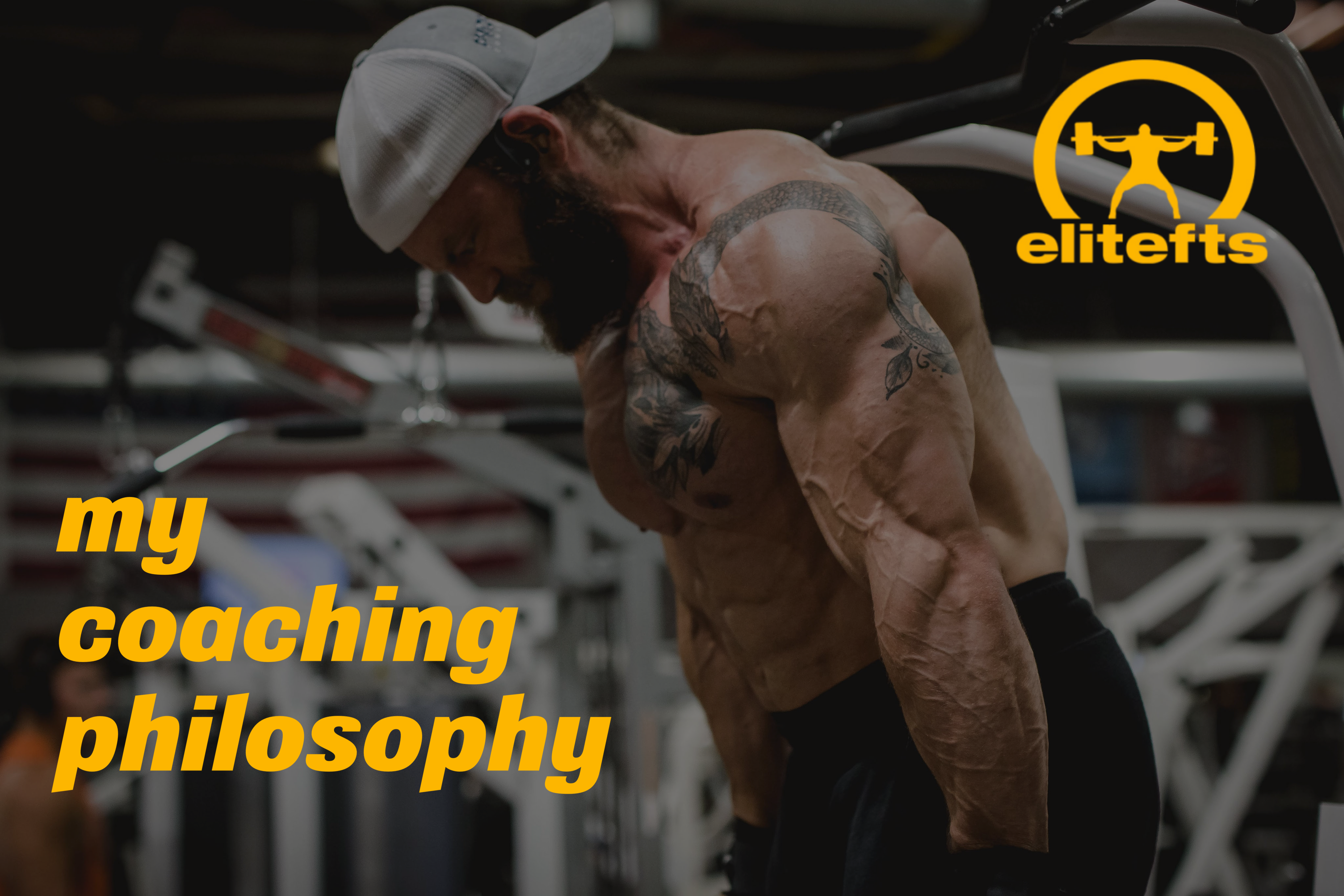
Over the past few months, I've been dealing with a very difficult neck injury. Injuries suck, and my own training is limited, but I've had more time to expand my role as a coach. That's been extremely rewarding, and I wanted to take the opportunity to share some of what I've found.
Here are three of the most important philosophies I use as a coach:
1. Your body is one piece.
It’s very tempting to approach training in terms of individual muscles, but your body doesn’t really work that way. Here’s a list of all the muscles involved in a dumbbell curl — one of the simplest “isolation” exercises:
- Biceps brachii
- Brachialis
- Brachioradialis
- Anterior deltoid
- Wrist extensors
- Wrist flexors
If you extrapolate from this list, it's pretty easy to imagine how many different muscles are actually involved in a squat or deadlift. You're not going to build big rhomboids squatting, but they're still involved in the movement – so it's usually not a great idea to hit seated cable rows before a heavy lower day.
For that reason, when I’m programming, I take a holistic approach to movement selection and sequencing. Here’s an example: let’s say an athlete has a bad habit of letting his hips rise too quickly out of the hole on a squat. He might have a posterior chain weakness, weak quads, or poor bracing (or all three). He might benefit from GHRs, split squats, and ab wheel rollouts — but in my experience, you can’t just throw accessories at a suboptimal movement pattern.
Instead, I’d find a squatting movement that forces coordination between knee and hip extension — like a paused hack squat against bands. Strengthening the movement pattern, rather than individual muscles, tends to produce much better results, much more quickly.
2. Your brain is your most important muscle.
I’ve written before about a “stress bucket.” The idea is simple: you can only handle so much stress, whether it’s physical or mental. Training creates stress, but so does life outside the gym, and it all goes into the same metaphorical bucket. When the bucket overflows, you regress (or even get injured). In practical terms, that means an accountant needs to pull back on training during tax season, and a new dad shouldn’t be training five days a week.
Attitude counts, too. If you approach a training session (or even a single lift) with confidence and excitement, you’re far more likely to be successful than if you feel tired, stressed, or anxious. I encourage all of my lifters to develop a meditation and journalling practice to strengthen their mental game in the gym, and most have found it very beneficial.
I don't think that's new information for anyone. Most people know how mindset contributes to athletic success. But I do think a lot of guys – myself included – often forget how much training can strengthen your mind. And, in my opinion, a stronger mind creates a better life. That’s why I titled my first (and best) book Think Strong. It’s also why my #1 goal as a coach is to help my athletes use their training to build the type of courage, discipline, and resilience they can apply to every aspect of their lives.
3. Less is more.
In my experience, most lifters train too much. You don’t need to do a whole lot in the gym to stimulate progress, but if you do too much, you’ll put yourself in a hole very quickly. It might not be a deep hole, but it will still likely result in suboptimal progress.
This is a tough one for many athletes. We’re conditioned from an early age to believe that more effort produces more results. It's even tougher because the amount of volume you can survive is far, far greater than the amount you need to thrive. That discrepancy often leads to feeling lazy – but, as Terry Todd once told me, many great powerlifters are lazy (at least, in the gym).
Most guys need just two heavy training days per week. Those days should be supplemented with one or two lighter days. The lighter days are incredibly valuable, because they create space in a program to address weakness. (Those weaknesses don’t have to be muscular, by the way — lighter days can target work capacity, technique, or mobility, too.). You can take a look at my optimal powerbuilding program to get an idea of how this might look in practice.
My Athletic Philosophy
A coach is only as good as his athletes. And that's a tough truth to swallow for many coaches (myself included), because in a healthy coach-athlete relationship, the athlete works a heck of a lot harder than the coach. I can spend hours writing a perfect program, but at the end of the day, I'm not the one who has to get under the bar and execute.
In my next coaching post, I'll talk about my athletic philosophy, and how it helps me to get the most out of my own training. In the meantime, if what I've written here resonates with you, and you'd like to work with me, you can click here to apply for coaching.








